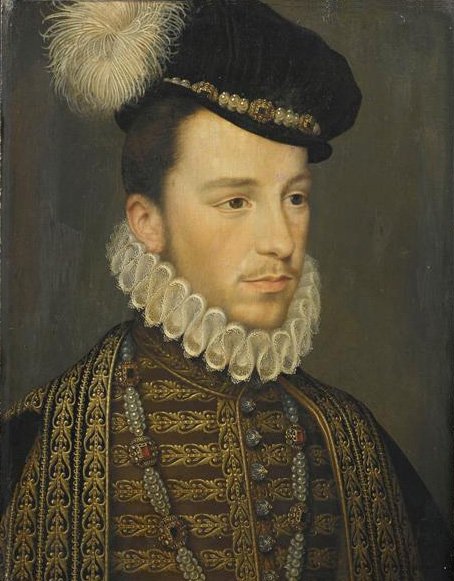
In 1572, Poland was in a bit of a fix. It was at war with Russia and the Ottoman Turks were encroaching on Polish borders. It was also the year that the Polish-Lithuanian King Sigismund II died and, despite being married three times and keeping several mistresses, he had failed to produce an heir. With the position vacant, diplomats from a number of European powers took a business trip to Kraków, the capital at that time, to pitch their contenders for the job.
Ultimately, it came down to a choice between the French and the Austrian Hapsburgs. As you can probably tell by the title of this article, it was the French who were successful in their negotiations, mainly because they had better relations with the Ottoman Turks as well as being able to guarantee money and military support that they so desperately needed! Among the losing candidates for the Polish throne were King Jan III of Sweden and Ivan The Terrible, the infamous first Tsar of Russia.
Ladies and Gentlemen, Monsieur Henry De Valois!
The guy who got the job, whether he was aware of the negotiations or not, was in the middle of waging a religious war against the protestant Huguenots in his Catholic-majority homeland. Henry De Valois (born Alexandre Édouard de France, AKA Duke of Anjou; 1551 – 1589) was the fourth son of King Henry II of France, and was considered a 'spare' since he had an older brother, then King Charles IX, that had already taken over from Dad. Before the Polish-Lithuanian bid, French diplomats had also pitched him as a suitor to the famous red-headed Queen of England, Elizabeth I. Although Elizabeth did seriously consider accepting the offer, our French suitor was not keen on the idea. 18 years his senior and suffering from a limp, Henry referred to her as 'old creature with a sore leg' and, even more tactlessly, 'Putain Publique' (ENG: public whore). His lack of interest in women may also come down to the fact that, as many historical accounts suggest, he was a homosexual.
The Sejm, made up of Polish and Lithuanian nobility at the time, elected Henry de Valois on the 9th of May, 1573. This was the first time in Polish history that a king was elected and did not ascend by birth-right! When the Polish delegation came knocking to tell him the good news about his new job in Central Europe, Henry was in the middle of laying siege to the port of Huguenot-controlled port of La Rochelle. As a condition of his coronation, Henry also had to swear by the new laws drafted by the Sejm, known as King Henry's Articles or the Henrician Articles, which defined the scope of his power and, at the same time, constituted the main principles of Poland's political system. As a monarch, the Henry De Valois' name would be Polonised as Henryk Walezy.
The Henrician Articles
These included guaranteeing religious tolerance, respecting the prerogatives of the Sejm and Senate or the possibility of denouncing obedience to a king who breaks his rights and privileges. These also allowed for equal representation of all noblemen in the Sejm, regardless of their status and wealth, as well as the law that a monarch's children had no entitlement to the throne by right of blood succession. These articles acted as the Polish constitution until 3 May 1791 (AKA the first Majówka) and it is often considered an important precursor to Constitutional Monarchy, the political model that currently operates in countries like United Kingdom, Sweden and The Netherlands.The Polish public had a very low opinion of the ruling Catholics in France, especially since news of the 1572 St. Bartholomew's Day massacre, which saw the murder of thousands of Huguenot protestants, had reached Central Europe. This placed extra pressure on Henryk with regard to the condition of religious freedom, especially considering that Poland had a very large minority of Prodestants at the time. Henryk was, thus, obliged to awkwardly call-off his siege on La Rochelle, the first of many political moves which would lose him favour with his fellow Catholics in France.
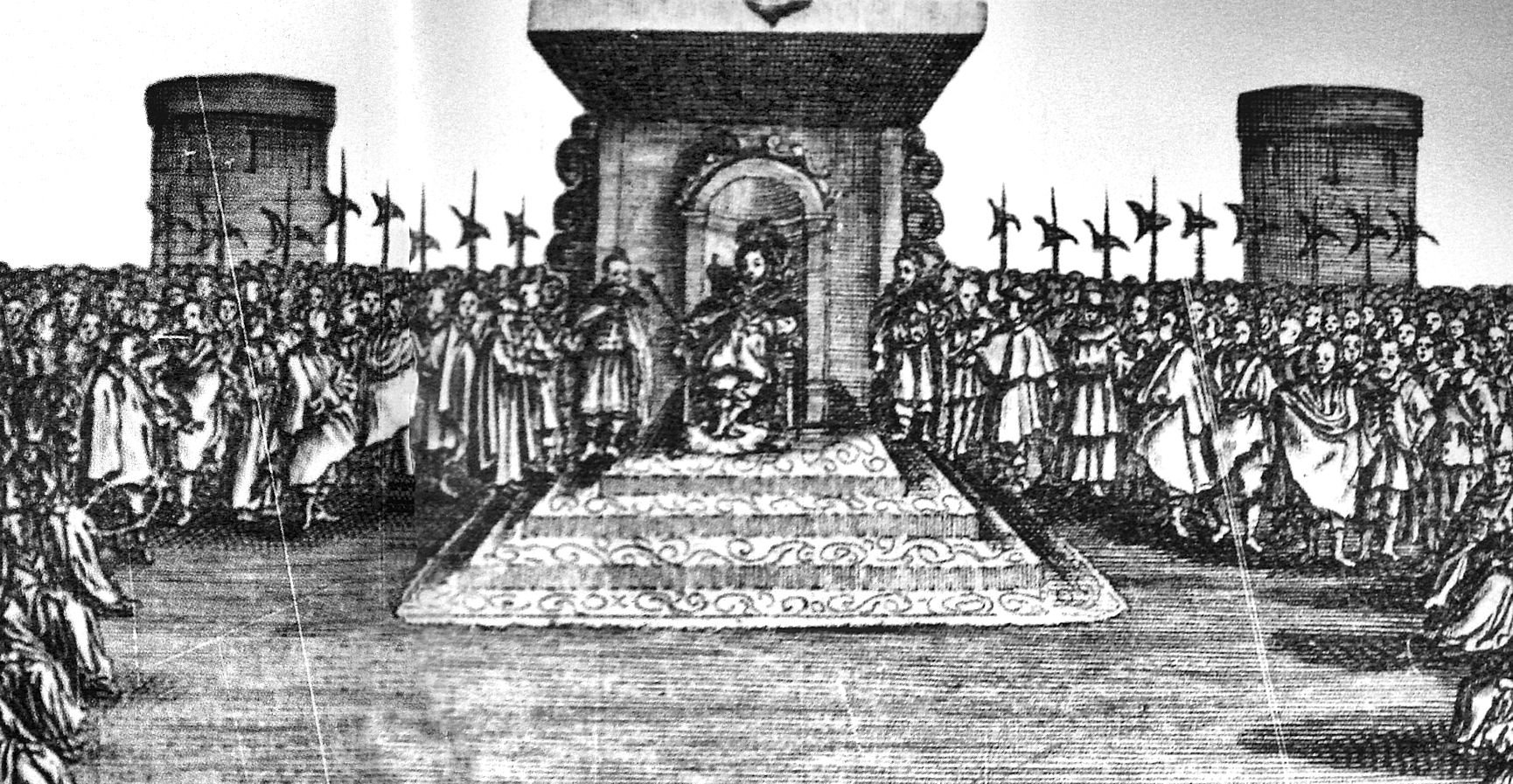
A French Fish In Polish Waters
It was almost 8 months after his election that Henryk and his entourage of 1200 horses with accompanying carriages, luggage carts, ladies of the court and 'women of light morals' eventually got to Poland after a 2-month journey. An extravagant coronation ceremony was held on 21 February 1574 in Wawel Castle, Kraków. As an outsider, the French king of Poland is alleged to have been quite shocked at the harsh climate as well as poverty in rural areas of the Polish dominion and the drunkenness of his subjects. He struggled with the uncentralised power system as a monarch would have enjoyed in France, and was generally uninterested in Polish affairs. On the other hand, he was a huge fan of his new residence in Wawel, which was 3 times bigger than the Louvre Castle where French kings resided at the time.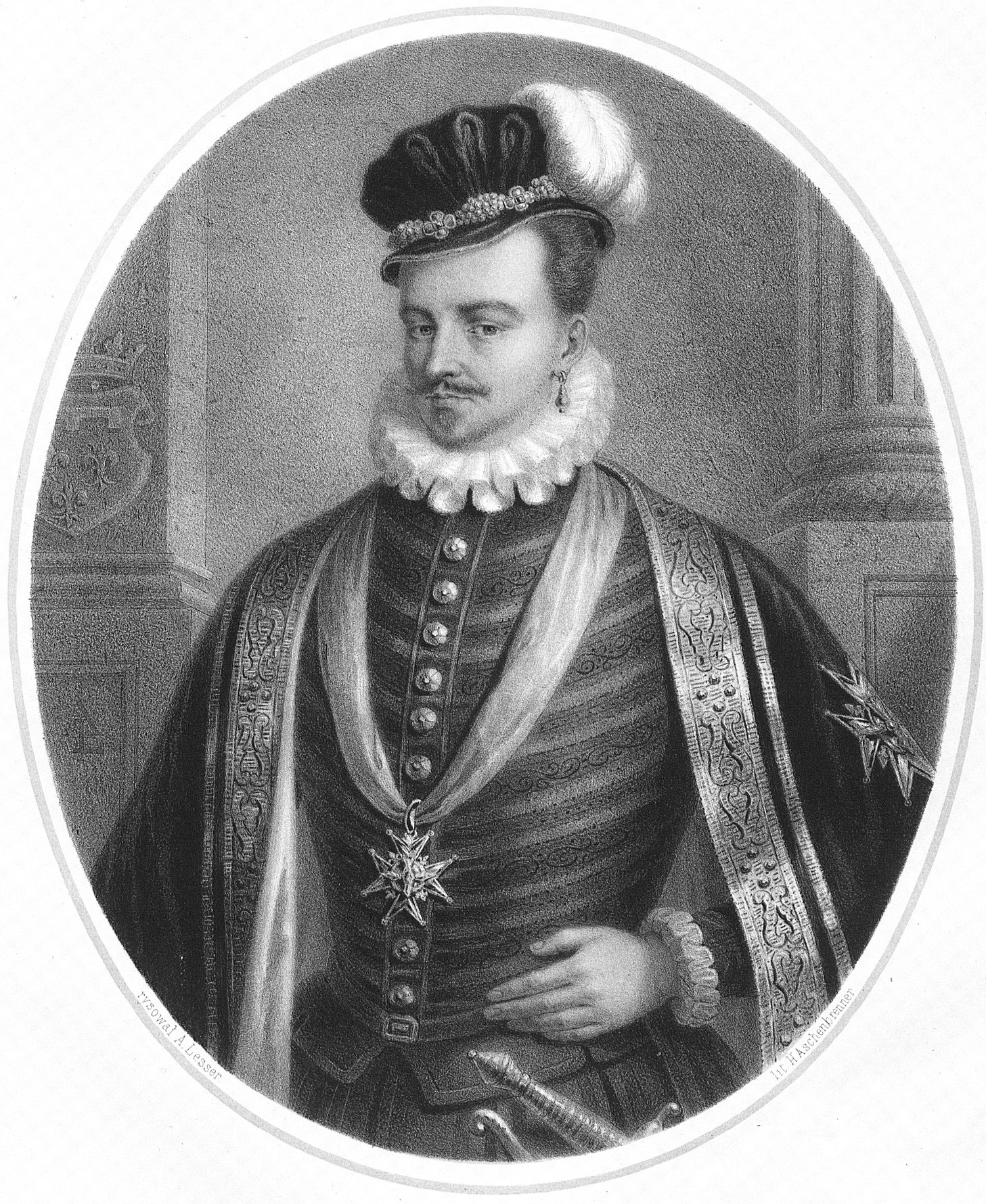
apparently showing Henryk's 'Polish Likeness'
From the Polish perspective, Henryk's fashion sense, jewellery and use of perfume were considered to be rather excessive and 'effeminate' by their own standards and the king's French followers were described as being incredibly vain and obsessed with their appearances. Henryk's non-existent Polish language skills meant that he avoided public events at all costs, finding them dull, and constantly sulked about his lack of power. He favoured partying with his French entourage and frequently gambled with money taken from the Polish treasury. One account describes him having nude women performing at his banquets. He is also alleged to have spent two weeks in bed on a number of occasions, feigning sickness, just to avoid receiving official visitors.
Escape from the Polish Party (Poopers)
In June of 1574, Henryk's older brother, King Charles IX, died of Tuberculosis. A few days after receiving the news, the French king of Poland and a handful of his followers departed Kraków in disguise journeyed to France, never to return. While he was able to succeed his brother as King Henry III in France, the empty Polish throne led to a constitutional crisis and, as a no-show, his reign over the Polish-Lithuanian Commonwealth was voided in 1575. While he had officially held the throne for the previous two years, Henryk had spent barely 6 months in Poland. He had also stood up Princess Anna, the last surviving member of the Jagiełłon dynasty, whom he was expected to marry. 28 years his senior, it's very possible that Henryk was just not into her, much like he was with Queen Elizabeth I of England. The question of his sexuality is still brought up, especially reinforced by the fact that even though he did eventually marry, he would never father any children. Princess Anna Jagiełłon was eventually wed to Hungarian nobleman Stephen Báthory and they jointly-ruled the next phase of Polish history.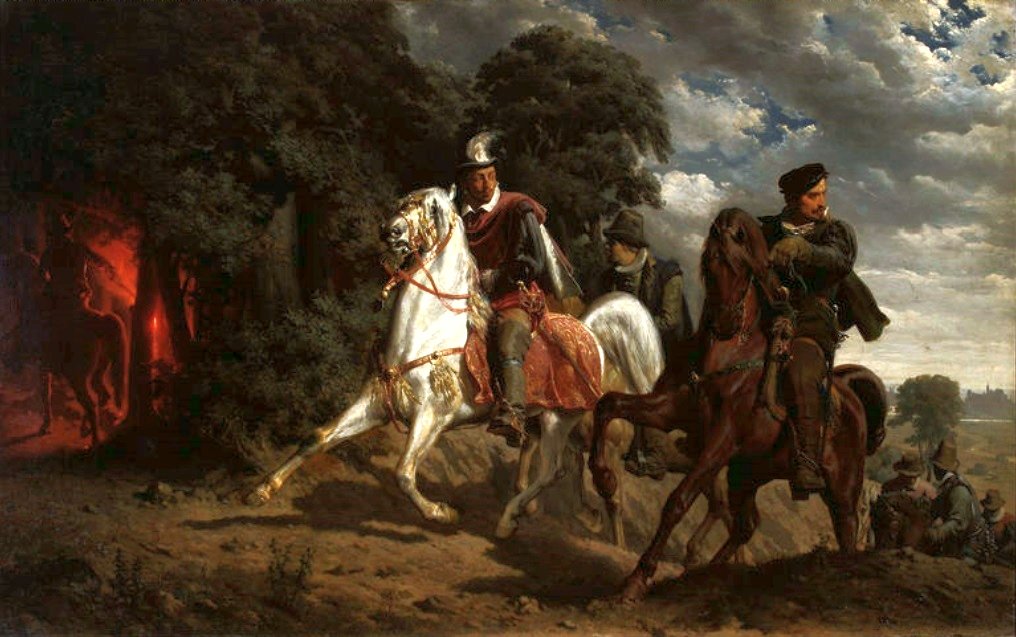
As for Henryk, now Henry III, he would reign as king in France for 14 years, continuing to navigate the power struggle between the Catholics and the Protestant Huguenots. He clashed with many of his fellow Catholics for granting concessions to the Huguenots at various points in his reign and it was a young fanatical Dominican friar, Jacques Clément, that assassinated King Henry in a knife attack in 1589. Till the very end, Henry would maintain that even though he never returned (and clearly had no intention of doing) he never stopped being the King of Poland. He clearly had a very low opinion of his Polish subjects, who he referred to publically as 'Barbaric, arrogant and unstable people'. Ouch! Good riddance, Henry/Henryk/Party Boy!

The Legacy of King Henryk Walezy
Fast forward to the 21st-Century and the question is asked: Does anyone still remember the French King of Poland? The answer is yes, but your average Pole can still only name the usual suspects: Mieszko, Bolesław, Jagiełłon, Jadwiga etc. and, in reference to Henryk Walezy - That name sounds familiar...Does he live around here? Though his reign in Poland was short, and he didn't take his obligations here that seriously, the proto-constitutional laws that were passed in his name were a landmark event in Polish politics and would ultimately be refined on 3 May 1791. On a lesser note, Henryk showed Poland how to be 'fabulous', though an ultra-conservative government probably does not want to acknowledge the fact that a probably-gay French royal was once their king! Public monuments to Henryk Walezy are non-existant in Poland, however, there is one curious tribute that exists in the Praga district of Warsaw. The mural (see below) depicts Henryk as a hood rep of Kamień, the old name for the village that is now Praga South. This is where the Sejm council met to elect their new king in 1573, and the accompanying text quite rightly points that out!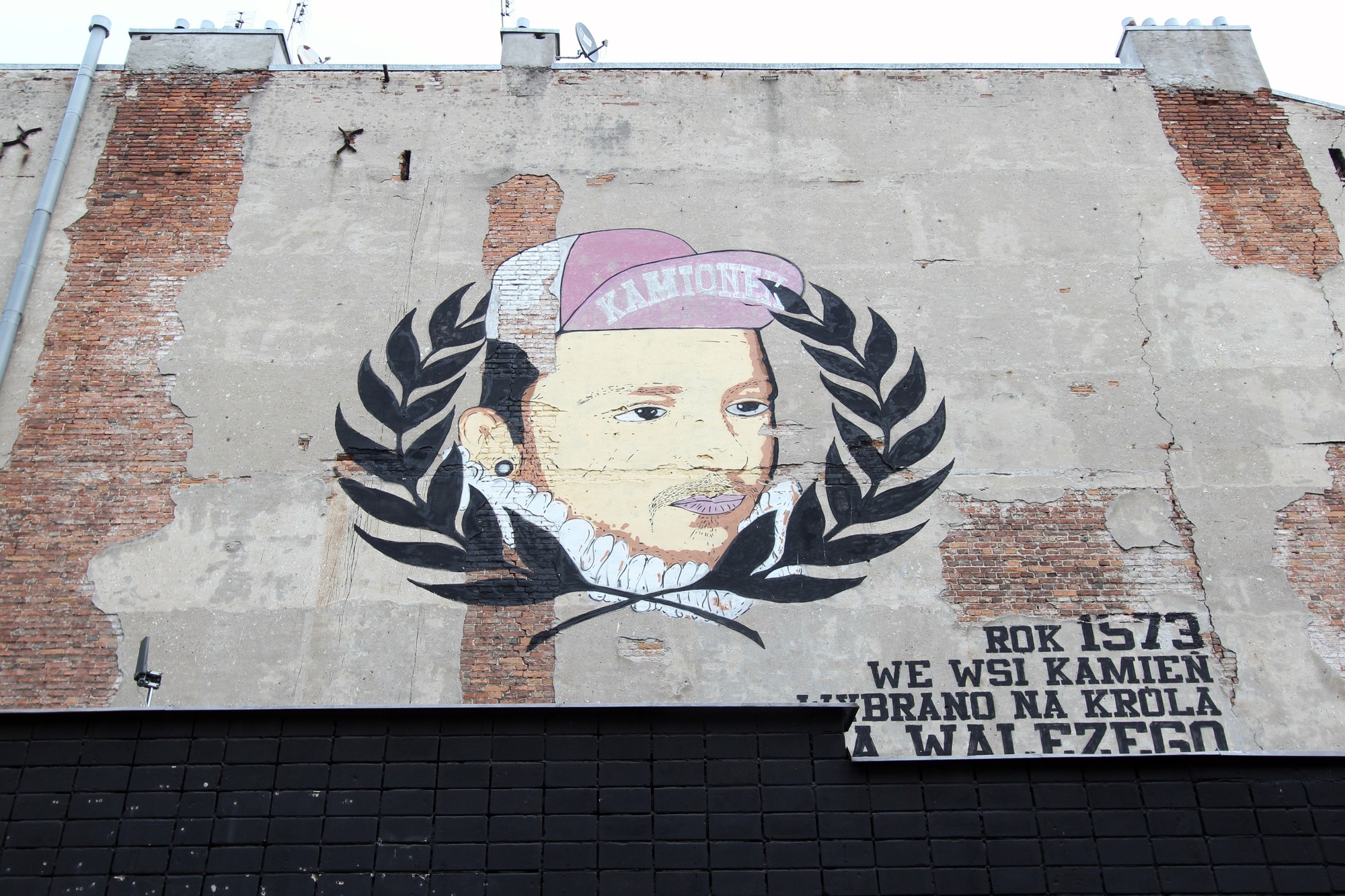





Comments